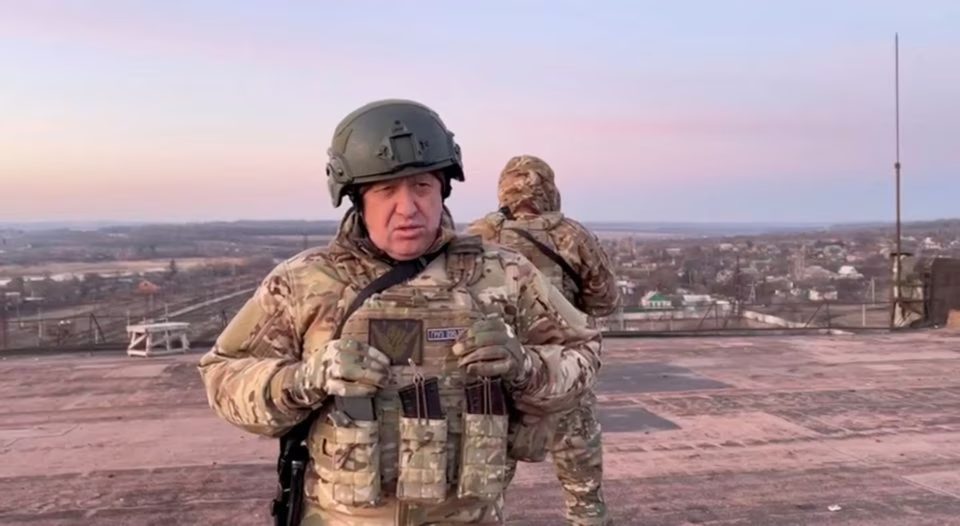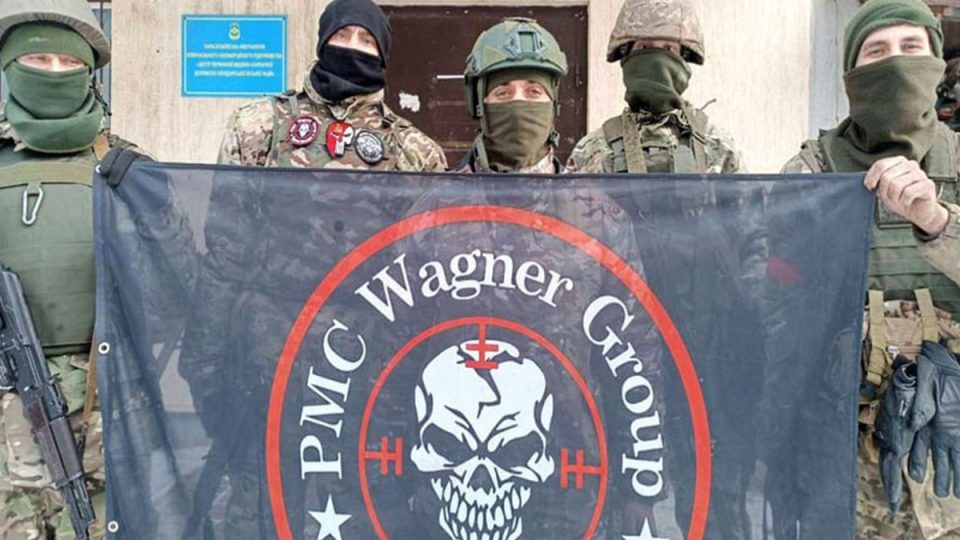
Prigozhin’s Wagner Group: How Russia’s band of mercenaries rebelled against Putin

The weekend rebellion by The Wagner Group, which has long been shrouded in secrecy and infamy, has put the spotlight on Russia’s mercenary force, which played a key role in its strategic manoeuvres within Ukraine. Linked to numerous conflicts around the world, its contractors are said to have participated in the civil wars in Syria, Libya, the Central African Republic, and Mali, often fighting alongside forces aligned with the Russian government.
While private military companies are officially forbidden in Russia, evidence suggests that Wagner has been used as a proxy by the Russian government. In the conflicts around the world, the group has been plagued by allegations of war crimes, including murder, torture, rape, and robbery of civilians.
Wagner’s rapid expansion and growing influence became evident during the Russian invasion of Ukraine. The group recruited prison inmates from Russia for frontline combat, rapidly increasing its strength from 1,000 to an estimated 20,000 to 50,000 members by the end of 2022. Russia granted combat veteran status to Wagner contractors who participated in the invasion, further blurring the lines between the group and official military forces.
Also read: Dogs of war: The shadowy group accused of trying to kill Ukraine’s president
The leadership of the Wagner Group has long been a subject of speculation. Dmitry Utkin, a veteran of the Chechen wars, is believed to have founded the group. Russia’s mutinous mercenary chief Yevgeny Prigozhin, often referred to as “Putin’s chef,” denied any connection with Wagner until September 2022, when he admitted to co-founding the Wagner group. This revelation came amidst growing criticism of the Russian Ministry of Defence’s handling of the war in Ukraine.
The Wagner Group: A brief history
Prigozhin co-founded the Wagner Group — a group of entities that operate as a PMC that an be hired by governments for security or combat services, named it after its commander, Russian Army officer Dmitriy Valeryevich Utkin, known as Wagner — during Russia’s annexation of Crimea in 2014, which led to the Donbas War in Ukraine, where it helped pro-Russian separatist forces from 2014 to 2015.
As the Russian military faced constraints in direct involvement, Prigozhin gradually built up Wagner as a formidable force, engaging in proxy wars in countries like Libya and Syria. His motivations were rooted in his ambition to expand Russian influence and maintain a private military force that can carry out operations beyond the reach of official military structures.
Wagner’s recent involvement in Ukraine has shifted the momentum in Russia’s favour, with the group reportedly having over 50,000 fighters in Ukraine alone. Wagner has also operated in various African countries, including Mali, the Central African Republic, and Sudan; it played a crucial role in supporting Syrian President Bashar al-Assad and aiding Libyan warlord Khalifa Haftar. Through these actions, Prigozhin has positioned Wagner as a powerful tool for advancing Russian interests on multiple fronts.
Also read: US, NATO had no hand in Wagner Group mutiny in Russia: Joe Biden
While Wagner mainly recruits from Russian prisons, they also hire fighters from the countries in which they operate. Prigozhin maintains close ties with Middle Eastern powers such as the United Arab Emirates and Egypt, leveraging these connections to expand his pool of hired guns. This recruitment strategy not only ensures a steady supply of fighters, but also allows for the cultivation of international alliances that can benefit Wagner’s operations.
Prigozhin’s rise to power
In the last nine years, the group gained notoriety for its ruthlessness, surpassing even the Russian military in efficiency. Last year, Prigozhin sent a symbolic message to the European Union (EU) by sending a sledgehammer covered in fake blood in a violin case, following the EU’s proposal to add Wagner Group to the terror list.
While some perceive Prigozhin’s turning against his own creator as a coup against Putin, the former claims to be targeting Russian military generals who have attacked Wagner soldiers. Prigozhin’s rise to power began in the early 1990s when he sold hot dogs on road stalls in Putin’s hometown of St. Petersburg. He eventually expanded his business ventures, establishing restaurants, retail stores, and casinos, which brought him close to Putin and secured government contracts.
The Wagner Group operates covertly and comprises several interconnected companies, making it difficult for the West to impose sanctions. It is believed to be under the control of the Russian Ministry of Defence and intelligence agencies. Wagner primarily offers protection to threatened regimes, often securing resource concessions or direct payment in return. It also acts as a foreign policy tool for Putin, garnering support from African countries in favour of Russia at the United Nations.
Also read: Wagner chief mocks Russian military for ‘failing to protect country’ in audio statement
Wagner’s appeal lies in its ability to provide deniability for Russian military operations abroad while concealing Russian casualties. The group recruits mercenaries from the Russian military, imprisoned individuals, and foreign nationals. It offers substantial payment, up to $2,500 per month, far exceeding the average income in Russia. Imprisoned convicts who choose to work for Wagner have their criminal records expunged. The Russian military supplies arms, ammunition, and training facilities to the group.
Despite its significant influence, Wagner maintains no legal entity in Russia, where mercenary companies are prohibited. The Kremlin consistently denies any affiliation with private military groups, referring to Wagner’s mercenaries in Ukraine as volunteer soldiers.
Prigozhin, who sarcastically rejects the nickname “Putin’s chef” (he owns a chain of restaurants and catering companies that provide services for the Kremlin) due to his lack of culinary skills, has openly criticised Russia’s military leadership, accusing them of incompetence and neglecting his troops’ needs for weapons and ammunition.
After the march, while Prigozhin claimed his troops took control of the headquarters of Russia’s Southern Military District in Rostov without firing a single shot, reports suggest they faced artillery and helicopter attacks en route. Putin has condemned the mutiny as a betrayal and vowed to take decisive action to defend the nation.
On the other hand, Prigozhin, in a statement to his Telegram social media account, said that his fighters had led a ‘march for justice’ that saw his troops travel from the southern Russian city of Rostov-on-Don to the outskirts of Moscow.
Also read: Russia drops charges against Wagner chief Prigozhin, others
“The whole time, not one drop of blood of our fighters was spilled,” Prigozhin said. “But now the moment has arrived when blood could be spilt.” The world now watches closely as Putin attempts to regain control over the monster he unwittingly helped create.
From the Ten Thousand to the Varangian Guard
Mercenaries were confined to history books and movies like John Irvin’s The Dogs of War (1980) for those unfamiliar with Russia’s involvement in the Middle East and Africa. Prigozhin’s rebellion has put the focus back on them.
The date back to ancient times. The Ten Thousand, a group of Greek mercenaries, played a significant role in Cyrus the Younger’s bid for power in Persia. Throughout recorded history, various infamous mercenary groups emerged, including the White Company in 14th-century Italy and the Varangian Guard in medieval times. These groups were often employed by states to supplement their own military forces or to pursue specific objectives beyond their capabilities.

The rise of PMCs has brought mercenaries into the corporate world. Blackwater, founded by Erik Prince, gained notoriety during the Iraq War for its controversial actions, including the Nisour Square massacre (2007).
Other examples include DynCorp International, which faced allegations of human trafficking, and Cerberus, which trained individuals involved in the murder of journalist Jamal Khashoggi at the at the Saudi consulate in Istanbul in 2018. The privatisation of security functions has raised concerns about the accountability and behaviour of corporate mercenaries.
Critics argue that the profit-driven nature of private military companies can compromise their adherence to international humanitarian law and human rights standards. Some argue that the glorification of violence by publications like “Soldier of Fortune” promotes a dangerous perspective on armed conflict. Besides, job markets for former military personnel can create incentives for involvement in morally ambiguous activities.
The shifting landscape of warfare
Private military companies often operate in legal gray areas, as their activities can blur the lines between state-sanctioned operations and private endeavours. This ambiguity makes it challenging to hold them accountable for their actions, and it raises questions about their compliance with international law. The Wagner Group, operating under the guise of a private security firm, enjoys a level of legal deniability that shields it from direct responsibility.
The rise of corporate mercenaries like Wagner also reflects the shifting landscape of warfare and the increasing reliance of states on private entities for security functions. States often outsource certain operations to private military companies to reduce political risk and maintain flexibility.
For example, the South African government has employed companies like Executive Outcomes and Professional Protection Alternatives in policing in Cape Town, South Africa. Private military companies also invariably function with more autonomy than regular military forces.
The state reliance on private military companies grows, concerns regarding accountability, transparency, and the ethics of using mercenaries become increasingly relevant. The Wagner Group crisis has shed light on these issues, raising questions about the long-term implications for global security and the complex relationship between private military entities, governments, and international conflicts.
Whether Prigozhin’s story is one of opportunism, loyalty, or a mix of both, it undoubtedly sheds light on the intricate mechanisms that shape Russia’s political landscape.

